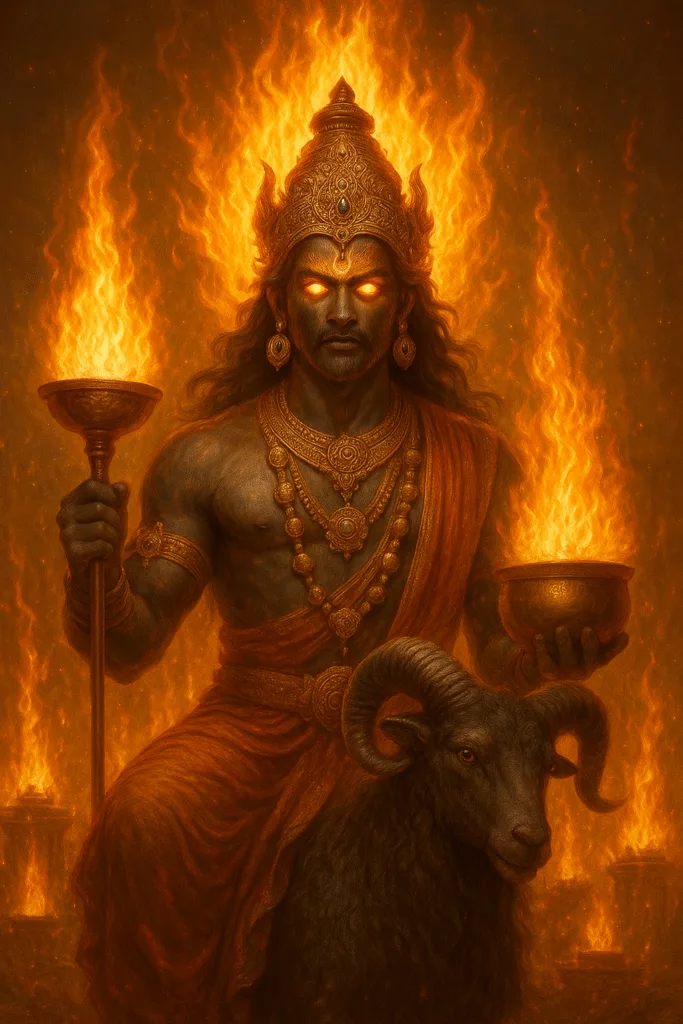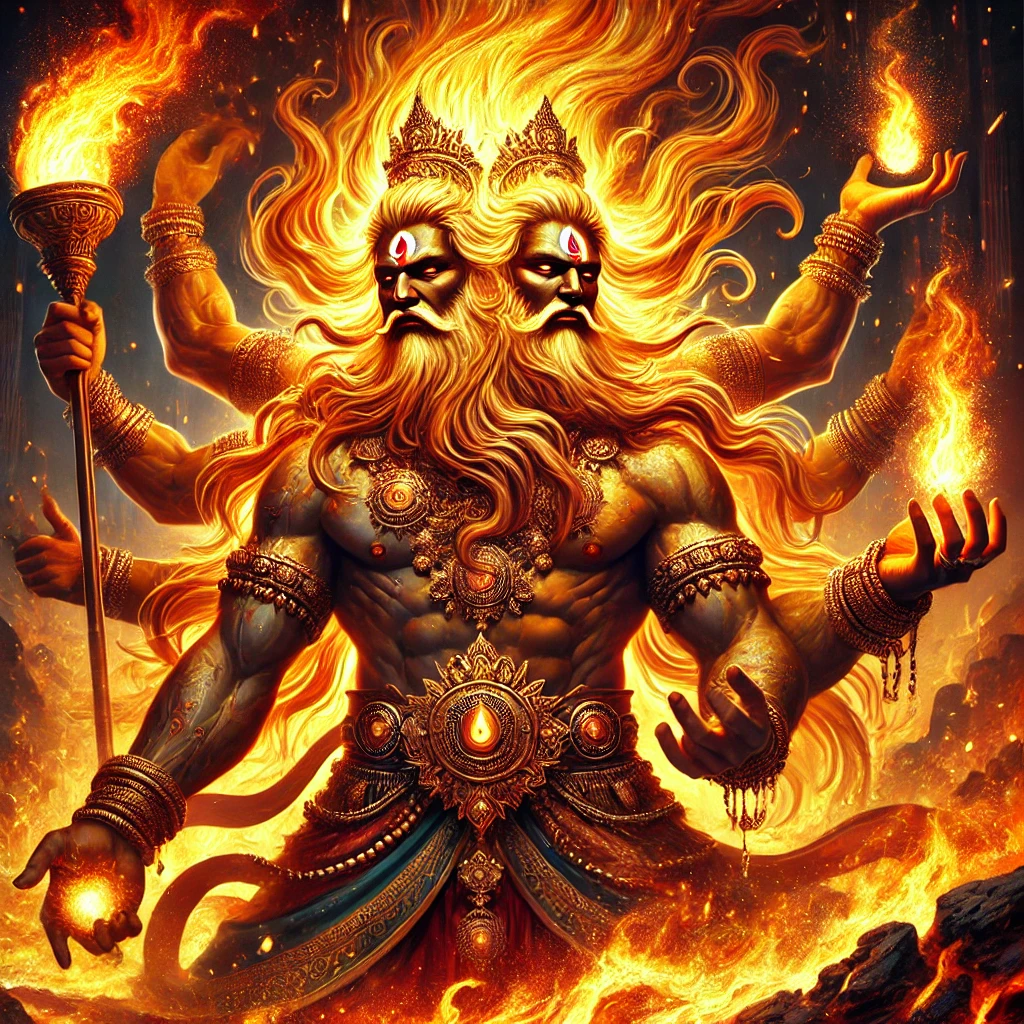Agni Devta: The God of Fire in Hinduism
In the sacred hymns of the Rigveda, the earliest scripture of Hinduism (c. 1500–1200 BCE), the very first verse is addressed not to a supreme sky-god or creator, but to Agni — the divine fire. This choice is telling: for Vedic society, fire was the living medium between the human and the divine. Agni Devta became both the flame in the hearth and the eternal cosmic principle, at once immanent and transcendent.

Vedic Origins: Agni as the Priest of the Gods
The Rigveda contains over 200 hymns dedicated to Agni, more than to any other deity. He is described as “purohita” — the divine priest who carries offerings from men to gods.
- Messenger of the gods (devānām dūtaḥ): Agni transports the offerings of clarified butter, grains, and soma through the sacrificial fire to the celestial deities.
- Witness of oaths and rites: Fire’s purity made it the eternal witness of human vows, from coronations to marriages.
- Tripartite presence: Agni exists on earth as fire, in the atmosphere as lightning, and in the heavens as the sun.
In Vedic ritual, without Agni there could be no sacrifice (yajña), and without sacrifice, no communion with the divine.
Symbolism and Attributes
Agni is portrayed in Vedic and later texts with striking imagery:
- Flames as tongues — devouring offerings.
- Seven rays/horses — symbolizing his speed and reach.
- Two faces — benevolent and destructive.
- Youthful yet eternal — ever reborn with each kindling.
He embodies paradox: the gentle hearth that sustains life, and the raging fire that consumes worlds.
Agni in Epic and Puranic Traditions
As Hinduism evolved, Agni’s centrality as a ritual god slowly shifted with the rise of deities like Vishnu and Shiva, yet he remained deeply significant.
- Mahabharata: Agni plays a pivotal role in the Khandava-daha episode, where he consumes the Khandava forest with the help of Krishna and Arjuna.
- Ramayana: Sita’s chastity is proven through the Agni-pariksha, fire being the ultimate test of purity.
- Puranas: Agni is personified as the son of Dyaus (sky) and Prithvi (earth), or in some accounts, as a manifestation of Brahma.
His consort is Svaha, invoked at the end of every offering (“svaha!”) during rituals. His sons, like Skanda (Kartikeya, the war god), connect Agni to broader Hindu cosmology.
Agni in Ritual and Daily Life
Even today, Agni retains a unique place in Hindu practice:
- Marriage rites (vivaha samskara): The couple circles the sacred fire seven times, with Agni as witness to their vows.
- Cremation rituals: Fire is the liberator, reducing the body to ash and releasing the soul.
- Temple lamps and homa rituals: Flames are lit daily, symbolizing divine presence.

Thus, Agni bridges ancient Vedic ritual and modern Hindu devotion, embodying continuity across millennia.
Philosophical Interpretations
The Upanishads reinterpreted Agni not only as ritual fire but as inner fire (antar-agni) — the digestive fire, the life-breath, the spark of consciousness. Later Vedantic and yogic traditions saw Agni as a metaphor for knowledge, purification, and transformation.
Fire became the image of the soul’s journey: consuming ignorance, illuminating truth.
Agni’s Enduring Legacy
Though overshadowed in popular devotion by Vishnu, Shiva, or Devi, Agni remains indispensable. Every Hindu ritual begins with fire; every sacred vow invokes him. In the cultural imagination, he is not just a god but a principle of energy, purity, and transformation.
From the Vedic sacrifice to the wedding pyre, from the eternal flame at shrines to the Olympic torch (inspired by Indo-European fire cults) — Agni’s symbolism continues to resonate across traditions.
Agni Devta is both the oldest and most persistent deity of Hinduism. He links the earliest Vedic chants with modern practice, mythology with philosophy, ritual with daily life. In him, we see the human recognition that fire is not just a physical phenomenon but a sacred force — a messenger, a purifier, and a divine presence.
As long as a flame is lit in Hindu ritual, the god Agni still breathes.